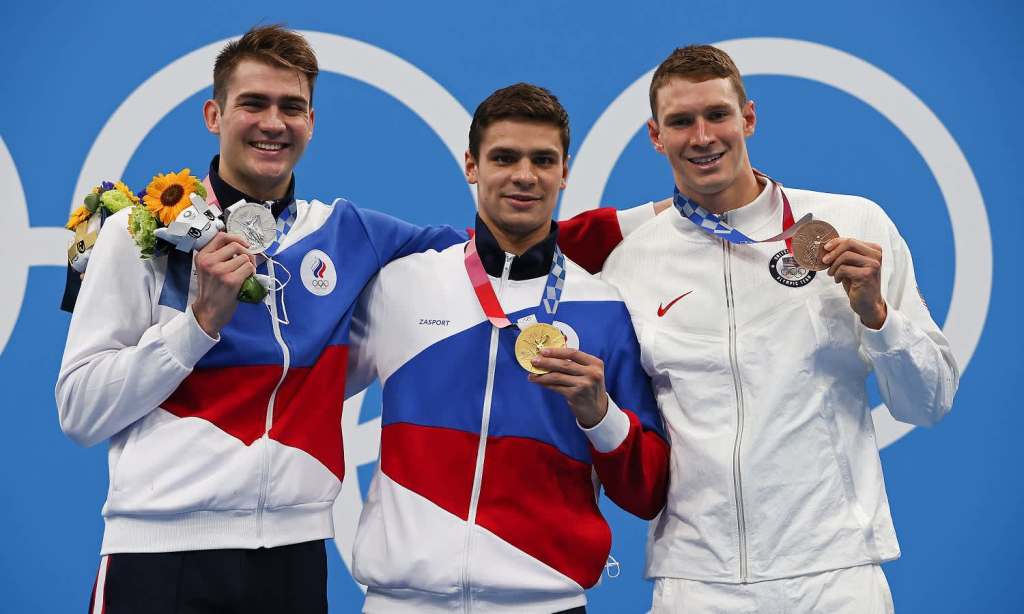The Olympic Games have been up and running in Tokyo for just four days now and already the medal board is heating up. All the usual big names are at the top. America, China, Japan (the host nation always does well) and ROC. All the those you would expect to be fighting it out for the top spot.
Wait, ROC? Which country is that and why are they suddenly so good at Olympic sports?
ROC is not a country. It’s an acronym standing for the Russian Olympic Committee. It’s the representatives of Russian athletes at the Games who can’t compete due to World Anti-Doping Agency (WADA) penalties.
In 2019, Russia was banned from global sporting events by WADA for its ongoing and widespread use of banned performance-enhancing drugs during major events.
The country has been mired in drug-cheating scandals for years, teetering on the brink of elimination from several past competitions.
This time, however, the International Olympics Committee has put its foot down and decided to remove Russia. Here’s what you need to know.
Why is ROC in the Olympics?
The use of the acronym ROC is a loophole that allows Russian athletes to compete in the Games. Their performances, however, won’t count towards the official cumulative medal tally for Russia as a country.
The only athletes that are allowed to perform under the banner ROC are those that have not been caught up in the doping scandal. ROC has 335 clean athletes competing this year.
Russian athletes are also unable to perform under the Russian flag and nor does the Russian anthem play during medal ceremonies. Instead, Tchaikovsky’s Piano Concerto No. 1 plays instead.
The athletes’ uniforms are also not allowed to use the word ‘Russia’ or ‘Russian’ unless it is followed by ‘neutral athlete’.
Why is Russia banned from the Olympics?
Russian athletes can’t compete under the Russian flag or name this year because of the WADA punishment for systemic doping of their athletes.
If you’ve ever seen the film Icarus, you’ll know how comprehensive their doping programme was. Not only has Russia had more medals stripped from athletes than any other country — 43, making up 30% of all medals taken from athletes — the programme was allegedly state-sponsored and was sanctioned from the very top of Russian politics.
Russia was suspended from Olympic competitions for four years in 2019 but that punishment was reduced to two years following an appeal in 2020.
How did Russia get banned?
Well, it’s been a long time coming and their doping programme has long roots. A 2015 independent commission organised by WADA uncovered Russia’s doping programme and a further 2016 investigation confirmed “beyond a reasonable doubt” that the Russian Anti-Doping Agency (RUSADA) had worked with other Russian agencies to cover up positive drug tests from its athletes.
The 2016 investigation recommended that Russia be banned from the Rio Olympics that year, however, the IOC rejected the recommendation. Instead, the IOC hand-selected the athletes that could compete at Rio, barring 111 of them from performing in the Games.
They also banned Russia from competing at the 2017 Winter Olympics in South Korea, although they were allowed to compete as ‘Olympic Athletes from Russia’ or OAR.
A further WADA investigation in 2019 was sparked after WADA found inconsistencies in its doping records. Russia had blamed technical issues for the discrepancies in its data but WADA concluded that Russian authorities had used fraudulent samples and deleted computer records that could have identified the cheats.
That investigation and the appeal process is why Russia is banned from this Olympics.
WADA president Sir Craig Reedie explained the decision to enforce the four-year ban that came due to data manipulation by RUSADA.
“For too long, Russian doping has detracted from clean sport. The blatant breach by the Russian authorities of RUSADA’s reinstatement conditions demanded a robust response. That is exactly what has been delivered,” Reedie told the BBC.
“Russia was afforded every opportunity to get its house in order and rejoin the global anti-doping community for the good of its athletes and of the integrity of sport, but it chose instead to continue in its stance of deception and denial.”
The ban came into effect at the end of the appeals process in December 2020, meaning Russia cannot compete during Tokyo 2020. The WADA ruling also disqualifies the country from the 2022 Winter Olympics, and the 2022 Football World Cup.
That means we could be seeing a lot of ‘ROC’ over the next year.
Read more stories from The Latch and subscribe to our email newsletter.







